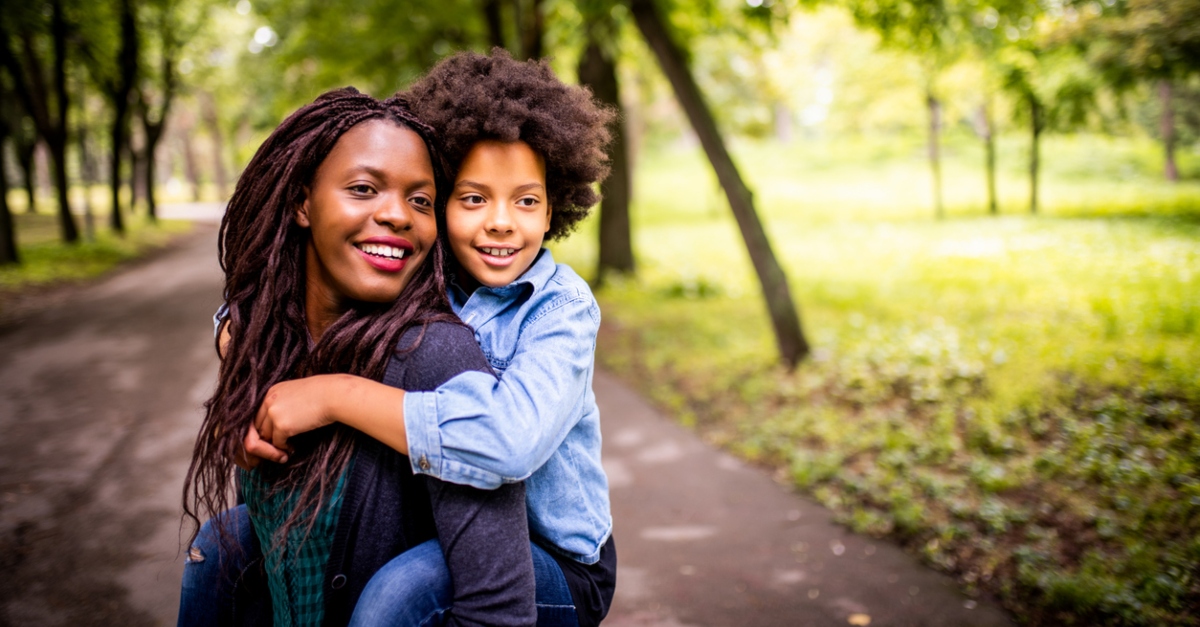
Friends, we are at least seven months into this little thing we call the global health crisis, aka the way The Virus That Must Not Be Named has had us all more or less locked down in our homes since March 2020. When you really stop and think about it, it's really wild: We have all spent most of this year hanging out at home, not really hugging or loving our friends and family. Some of us have mourned the loss of loved ones, some of us have mourned the loss of our regular events and happenings, and it's likely that all of us have experienced a whole range of feelings that include being hopeful, scared, worried, anxious, upbeat, and mostly just really confused.
Our kids are definitely feeling the weight of this experience, too, and I know most parents are really concerned about what kind of effect this whole situation is having on our children, in both the long and short term.
Even though things are weird for everyone right now, there are things you can do for kids to help make this extended time of global weirdness a little more bearable. Here are eight suggestions for keeping kids happy seven months into the global health crisis.
1. Suspend the rules where you can.
If you're the type of parent who likes to have rules in place, consider bending the rules when you can. I know that some children genuinely do respond to knowing exactly what will happen and when, but if there's one thing we've all learned in 2020, it's that you can't really control much. Maybe you decide to take a break from homework one night, or you have pancakes for dinner, or you even let your kids stay up late on a Wednesday so you can all watch Casper together: If there's a way to be flexible with your kids and yourself right now, take it.
2. Keep your own feelings in check.
I don't mean that you shouldn't express how you feel about The State Of Everything in front of your kids — that's not healthy. Kids need to see their parents and caregivers model healthy ways to process and deal with things that are hard.
I have noticed in my own life that my son picks up on my anxiety and mirrors it. Once it became clear that we were going to be hunkering down at home for much longer than I originally thought, I started being more diligent about getting through each day in a way that didn't seem like I thought the world was on the brink of falling apart. Some days it's tough, and I tell my kid that when it's one of those days. But generally, I've found that we can have conversations about how scary things are right now without becoming terrified as long as I'm centered on giving my kid the answers he wants in ways that are still hopeful and grounded.
3. Be kind to yourself.
We have always been the kind of home that limits screen time … until the virus hit. I swear, my kid logged so many hours on screens between March and July that it was truly embarrassing — but I also didn't know what else to do with him. Video games have become his way to connect with his friends, and TikTok has become a way for him to get some downtime and just chill out.
We put limits back on screens in August because we realized that, like, we're in this for a hot minute, guys. Everything can't totally fall apart. But I refused to feel bad about letting him sit on devices for hours then, and I refuse to when it does sometimes happen now. For me, that's a huge step in the right direction.
4. Make a bubble or a pod if you can.
My son's dad and I recently agreed that our kid can start having sleepovers with two friends (who are brothers) after months of not seeing each other in person. This has meant we've had to have a lot of conversations, and all the adults know way more about each other's activities than we usually would. But it's been worth it to establish a bubble, or pod, that we feel safe in. This is especially true as we move into the fall and winter, especially since experts are already warning that the virus situation will likely only get worse. If you can form a pod or bubble, do so, but make sure everyone involved is being honest.
5. Make new holiday traditions.
We're moving swiftly toward the holiday season, with Halloween around the corner and Christmas, Kwanzaa, and Hanukkah not too far away. This year you might not get to visit your extended family like you usually do, but you can still make the holidays just as fun and magical as ever. Find out if your city will be sponsoring any drive-through light shows, or see if there will be community socially distanced events going on that you can participate in. Make sure some traditions, like the special meals you might eat, are the same, just scaled down. Pick a family movie to watch together, or even consider starting a new tradition as a family, like singing carols at night.
6. Answer questions and validate feelings.
I am a strong, strong believer in the idea that parents should always answer the questions their children ask and validate the feelings their children have in response to the answers they receive. I don't think a child is ever too young to receive an answer, I just think answers need to be tailored to your child's age and/or maturity level. It's really important to make sure you are addressing the worries, fears, and concerns that your children are expressing right now. Find a way to do so that makes you both feel OK, and go for it.
7. Don't stress about making every day magical.
If you're not a crafty kind of person, don't let the current situation push you overboard. If you don't naturally create beautiful decorations in your home for your children to wondrously traipse through as if they are magical fairies, don't start now! It will just stress you out! (If you are that kind of parent, carry on: You're boss.)
Right now, some days are going to just be … hard. That's OK. You can even lean into it.
8. Find ways to make meaningful connections.
Your kids are probably missing people who have been in their lives in a big way, and fatigue is real. While it might be tempting to expand your bubble or pod or to take just one visit to see a loved one, you have to always ask: Is this worth risking my life or the life of someone else? If the answer is no, find new ways to stay in touch. Maybe you're sick of Zoom (trust: I get it), but have you tried writing letters? There are a lot of ways to stay in touch with the people we love, if only we think a little about what could work.







